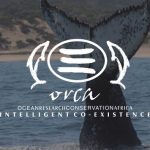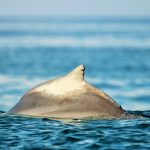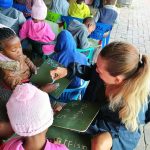July research blog
Exciting news for the elasmobranch egg case project! Oceans Research (http://www.oceans-research.com/) in Mossel Bay will be collaborating with us on this project, and will be starting monthly egg case collections at a site in Mossel Bay. This is a wonderful opportunity to partner with a fantastic research organization and investigate what egg cases are washing up in Mossel Bay.
Our project investigating the ingestion of plastic by fish has been progressing well, with a few interesting finds. We have been stocking our freezer with fish stomach samples as the processing of samples is a time consuming process. Each stomach is placed in 10% potassium hydroxide, which digests biological material and leaves plastics (if there are any) unaltered. This liquid is filtered and the filter paper is carefully searched through under a dissecting microscope for particulates. We have found some fibres, and some obviously plastic pieces, as well as some unidentified, odd items. Exciting times ahead as we move through our freezer of samples. None of this would be possible without Enrico’s Fishing Safaris – thank you!
Plett Hope Spot hosted another lecture this month where Dr Jenna Jambeck spoke about plastic entering our oceans from land. It was a fantastic lecture that really inspired everyone who was there to do more to minimize the amount of debris entering our oceans.
July marks the start of a collaboration with 7seasrope (https://www.facebook.com/7seasrope/), a company that conducts beach cleanups with communities and volunteer projects. They fund these beach cleanups through the sale of handmade bracelets using the rope and fishing nets washed ashore that are collected during the beach cleanups. If you would like to purchase one of these cool bracelets, to aid further beach cleanups, chat to us.
ORCA Foundation has been lending our assistance on a Masters project which aims to investigate the efficiency of using permanent hydrophones (passive acoustic monitoring) to differentiate between two inshore dolphin species, to estimate group size, and to monitor temporal occurrence of the two species. To do this the hydrophone data needs to be ‘ground truthed’ and we have spent time on Robberg 5 (where one of the hydrophones is situated) doing landbased observations.
July has seen some wonderfully warm winter days, and spectacular whale sightings! Southern right whales have been coming in close to shore, in numbers far greater than last year. Keep an eye out for blows!
Written by Minke Tolsma, ORCA Foundation Researcher
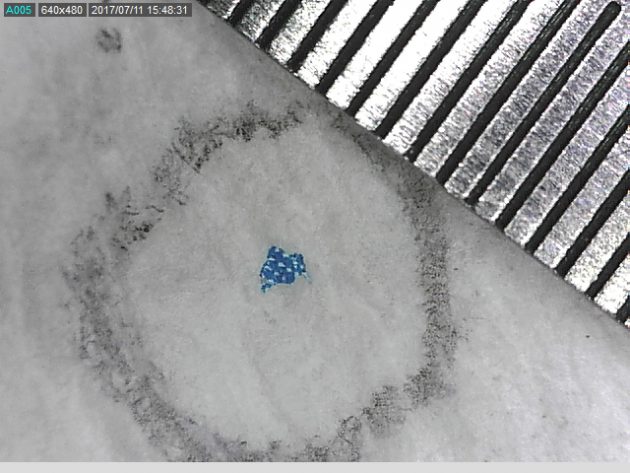
A microplastic found in a hake
![]()
Tracking whales from land with Oceans Research
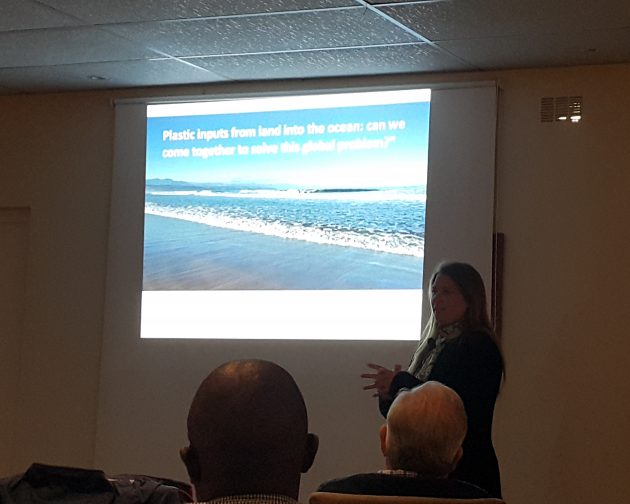
Plett Hope Spot lecture by Dr Jenna Jambeck
